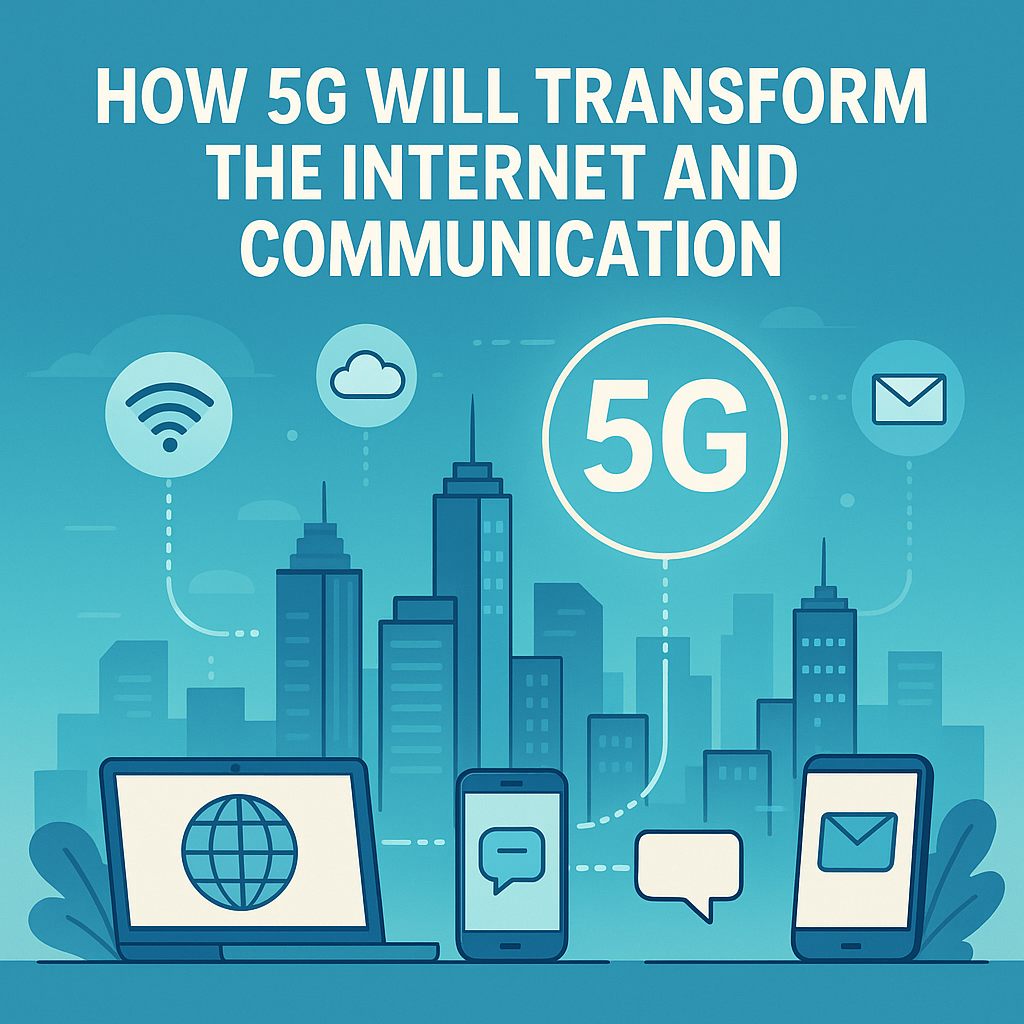Introduction
The evolution of technology is happening at a rapid pace and among the greatest innovations that will shape our digital future is 5G technology. As the next generation of wireless connectivity beyond 4G LTE, 5G is much more than just a faster connection to the internet; it is fundamentally changing the way in which we engage and interact with each other, businesses and industries.
With promises of ultra-fast speeds, ultra-reliable low latency, and massive connectivity of devices, 5G is now a game changer for how we connect and engage with the internet. 5G will help to make autonomous vehicles, smart cities, and e-health applications a reality. 5G will redefine the meaning of connectivity for the 21st century, setting the stage for applications across users’ daily lives, including healthcare, education, and communications.

In the following sections, we will outline how 5G will transform the internet and communications, its benefits, challenges and the industries that will be transformed forever.
What is 5G Technology?
5G is the fifth generation of wireless technology and the new global standard for mobile networks following 4G LTE. The main focus of the 5g is not just faster mobile browsing but the ability to be used with a diverse range of devices, services and applications, with greater efficiency.
Highlighted Benefits of 5G:
Speed – up to 100x faster than 4G.
Latency – as low as 1 millisecond.
- Mobility
With self-driving cars and smart transportation systems, vehicle-to-infrastructure communications must be very fast. 5G allows these vehicles to respond quickly to avoid collisions, reduce accidents and improve traffic flow for safer roads.
- Media and Gaming
With ultra high-speed streaming services and cloud gaming platforms, as well as immersive VR experiences, the media and entertainment sectors will continue to flourish. Gamers will experience lag-free, real-time multiplayer gaming and movie goers can stream ultra-high-definition content without delays.
- Business and Finance
With secure, fast financial transactions, businesses can utilize chatbots, AI tools and predictive analytics powered by the functionality of 5G, improving their interactions with their clients. Businesses would also be able to implement new business models like immersive advertising and real-time tracking.
The Benefits of 5G for Society

Digital Divide: Many rural and remote areas will now have access to a major transit and develop high-speed internet to overcome the physical distance.
Economic Development: With innovation across many sectors from 5G, many new businesses and jobs will be created.
Sustainability: Smart cities and energy-efficient operating systems will make a small contribution to lowering our impact on the environment.
Globalization: Barriers to communication will get lower, connecting more people globally than before.
The Challenges of 5G Implementation
Even though it has the potential to be a significant game-changer across many industries, 5G adoption will not be without its challenges.
Infrastructure Costs: Establishing a curated national model for 5G networks does not come cheap.
Device Compatibility: Consumers with smartphones and devices will need a new 5G enabled devices.
Security Concerns: More personal devices translated into exposure to risk and threats.
